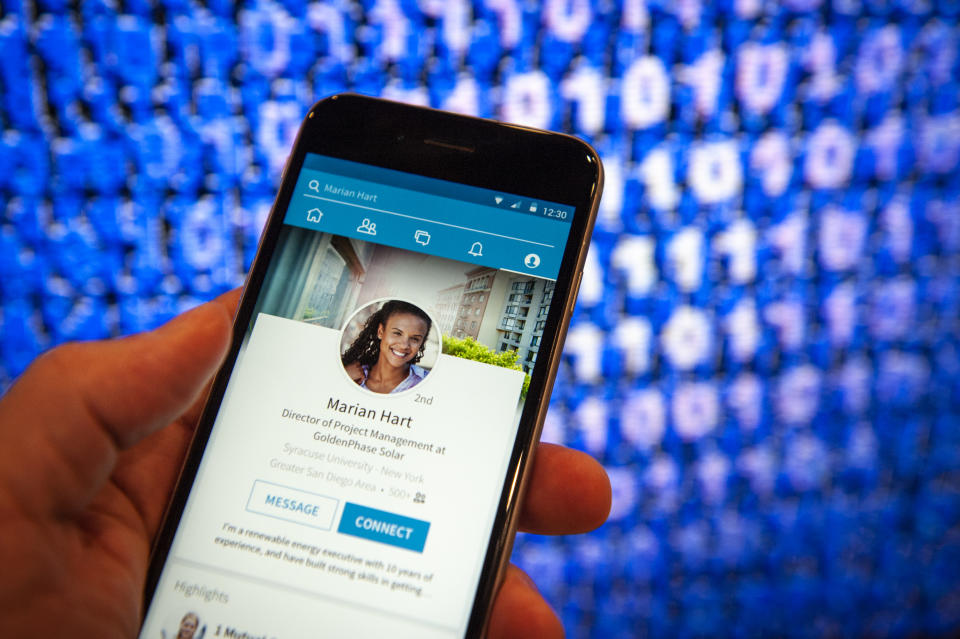7 LinkedIn profile mistakes that are hurting your job hunt

If you’re applying for your dream jobs but aren’t getting any call-backs – it’s probably not a coincidence.
Did you know that before an interview date and time is even locked in, you’ve already been vetted online?
According to FastCompany, here are seven red flags on your LinkedIn profile that are putting recruiters off:
1. Your headline is misleading
Many people don’t realise that you don’t have to put your current job title as your headline, especially if you have aspirations upwards.
Instead, go for something that reflects your job and expertise but isn’t misleading, such as “Leadership in Product Management with Mobile and Healthcare Expertise” or “Marketing Professional for High-Growth Companies”.
On the other side of the coin, shy away from extremely broad catch-all titles like “consultant” or titles that don’t mean anything like “advocate” or “tech explorer with a systematic approach”.
2. Your education details are incomplete
Being vague about education qualifications sets off red flags to recruiters straight away.
“Clients will be really vague about the type of degree they got,” said career coaching firm D&S Professional Coaching co-founder Debra Boggs.
For example, instead of specifying a particular bachelor’s or master’s degree, they’ll just say that they studied biology.
That’s a big red flag to recruiters that they don’t actually have a degree, and it can be a dealbreaker for some employers – so make sure you’re as specific as possible.
3. Your industry information is imprecise or outdated
Recruiters are going to use filters to narrow down their search – so if you used to work in tech but now you work in fintech, your profile may not register on their radar.
Failing to update your industry information also can signify lack of attention to detail – so be sure to check all your information is up to date if you want to increase your chances of capturing the recruiter’s attention.
4. Your LinkedIn profile doesn’t match up to your resume
You’ve just recently overhauled your entire resume and it’s looking clean and professional, with a new design and updated information.
But your LinkedIn profile remains neglected, meaning that recruiters don’t know what to believe when they compare your profile side to side with your resume.
Check that the dates, positions, job titles and additional information match.
5. Your profile photo is inappropriate
You don’t need a professional photo shoot, but selfies or photos from your wedding day are no-nos; after all, it isn’t Facebook.
Your photo needs to reflect the degree of professionalism you’d like to communicate, so put on something sharp, pick somewhere with natural light and get a friend or a colleague snap a picture for a quick and budget-friendly option.
Of course, there are exceptions to this.
For example, if you work in tech or design, it could be perfectly appropriate to have a more creative or relaxed photo.
6. You come across as desperate
You might be eager for a new job, especially if you hate your current one, but that doesn’t mean you should yourself seem available to the point of desperation.
Recruiters want their new hires to count – so show off your experience or position yourself as a subject matter expert or industry thought leader to make yourself an attractive candidate to potential employers.
7. You’ve aligned yourself too closely with your current company
Perhaps you were incredibly enthusiastic when you first started at your current role and invested a lot of time and energy into proudly representing the brand.
But that was then and this is now, and the role has changed or it wasn’t what you expected.
Either way, if your personal brand is too closely tied with that of the current company you’re working with, it could backfire on you: recruiters might think you’re not interested or they might be concerned you’ll remind customers of the competition.
When you begin your job hunt, put some distance between yourself and the company you currently work for. This could mean replacing any images with the company logo on it with ‘neutral’ image, or start posting your own articles instead of only being a mouthpiece for the company.
Use your profile to distinguish yourself as an individual and expert in your own right rather than an enthusiastic employee at the company you’re currently working for.
Make your money work with Yahoo Finance’s daily newsletter. Sign up here and stay on top of the latest money, news and tech news.
Now read: The body language signs to look out for in a job interview
Now read: The one thing bosses can do to keep their staff
Now read: 10 Aussie jobs set for the highest employment growth by 2023
Now read: A fat paycheck isn’t enough for new graduates; they want this instead

 Yahoo Finance
Yahoo Finance 
